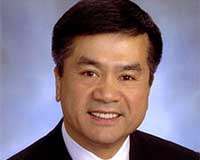 |
Dharamshala, India (AFP) March 10, 2011 The Dalai Lama is now 75, but any sign he might be stepping back from his hectic life as the public face of Tibet's struggle for freedom is greeted with dismay by supporters worldwide. His promotion of non-violent action against injustice and his Buddhist teachings -- along with his ready laugh and oversized spectacles -- have made him a global icon compared by many to Mahatma Gandhi or Martin Luther King. However the "god-king" has little to show for his decades of lobbying for autonomy in Tibet, with the Chinese government cracking down on dissent in the region and vilifying him as a "monster" who is trying to split the nation. The Dalai Lama fled his Himalayan homeland after a failed uprising against Chinese rule more than 50 years ago. Since then he has lobbied for greater autonomy -- rather than full independence -- for Tibet from his exile base in the northern Indian hill town of Dharamshala. Comfortable in both television studios and intellectual seminars, he is a powerful rallying point for Tibetans living in exile or in their homeland, and is celebrated as a friend to kings, politicians, celebrities and the poor. His success in keeping the Tibetans' plight in the international public eye is unquestioned, though his personal magnetism means that many in the movement cannot contemplate a future after his death. On Thursday, he announced he would step down as political head of Tibet's exiled government, while continuing to push the Tibetan cause in his key role as its spiritual figurehead. Born into a peasant farming family in the Tibetan village of Taksar on July 6, 1935, Lhamo Dhondrub was chosen as the 14th incarnation of the Dalai Lama at the age of two. The boy was taken to the Potala Palace, perched at an altitude of 12,210 feet (3,700 metres) in Lhasa, where he was coached in the skills and knowledge needed to be Tibet's spiritual and temporal leader. He indulged a precocious scientific curiosity, playing with a watch sent to him by US president Franklin Roosevelt and repairing cars, one of which he crashed into a palace gate. But at 16 he was called upon to become head of state when China invaded Tibet in 1950. He tried to keep the peace but the effort failed in 1959 when China poured troops into the region to crush an uprising and reneged on a pledge to grant Tibet autonomy. The Dalai Lama, disguised as a soldier, trekked for 13 days through the Himalayas and crossed into India, which offered him Dharamshala as a base and allowed him to set up a government-in-exile. His campaign to reclaim Tibet morphed into a plea to Chinese authorities for autonomy for his people -- a pacifist stance that won him the Nobel Peace Prize in 1989. He insists his moderate "middle path" approach to the impasse is in the Tibetans' best interests, but more radical opinions exist within the Tibetan movement, particularly among young people. His title translates as "Ocean Teacher," a metaphor for the depth of his spirituality. When the Dalai Lama dies, the search for his next incarnation will begin -- a moment likely to spark fierce dispute between exiled Tibetans and the Chinese government.
Share This Article With Planet Earth
Related Links China News from SinoDaily.com
 History and scrutiny as Locke named for China
History and scrutiny as Locke named for ChinaWashington (AFP) March 9, 2011 Gary Locke's appointment as US ambassador to China marks a milestone for Asian Americans, but Beijing's leaders may be in for a surprise if they think his ancestry makes him a natural ally. Locke, whom President Barack Obama named Wednesday as the first Chinese American to serve as US ambassador to Beijing, boasts a rags-to-riches story of the sort loved by Americans. His grandfather arr ... read more |
|
| The content herein, unless otherwise known to be public domain, are Copyright 1995-2010 - SpaceDaily. AFP and UPI Wire Stories are copyright Agence France-Presse and United Press International. ESA Portal Reports are copyright European Space Agency. All NASA sourced material is public domain. Additional copyrights may apply in whole or part to other bona fide parties. Advertising does not imply endorsement,agreement or approval of any opinions, statements or information provided by SpaceDaily on any Web page published or hosted by SpaceDaily. Privacy Statement |